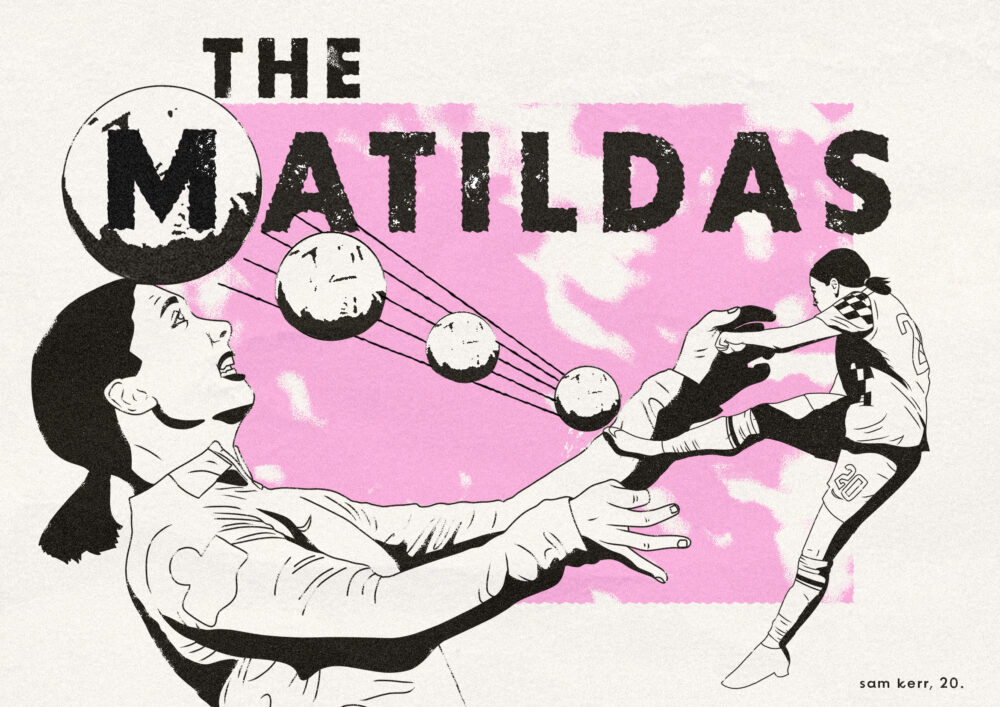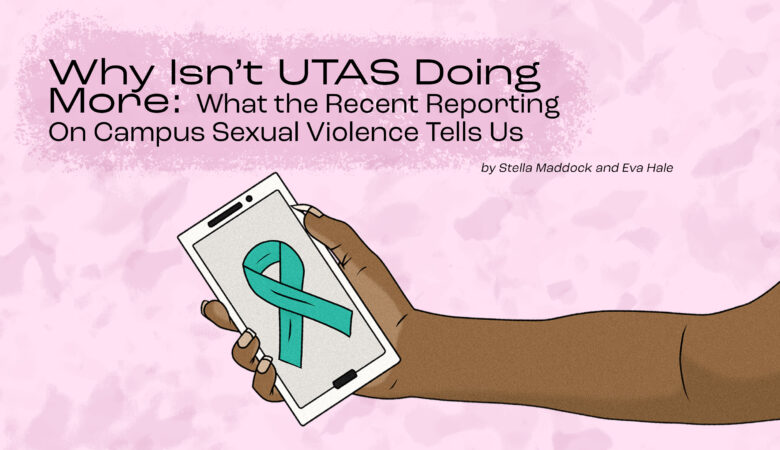Growing up in a sport-loving household, sport was always on our TV. Regardless of the season or time of year, we were always consuming sport-related media. I remember being aware that most of the sport we watched was focused on male athletes or men’s sporting teams, but I didn’t fully realise the gender inequality of the Australian sports media landscape until years later. Women in sport have been underrepresented in Australian media for decades. Despite the international success of Australian women’s sporting teams and female athletes, media coverage of sport has aimed its focus solely in the direction of male athletes and men’s sports teams. Studies have consistently shown that in Australia, female athletes and women’s sports have had minimal media coverage and recognition compared to male athletes and men’s sports (Litchfield, 2015).
With this in mind, what has unfolded over the past month for women’s sport in Australia becomes even more extraordinary. Australia has been captivated by the nation’s women’s football team, the Commonwealth Bank Matildas, and their rise through the FIFA Women’s World Cup, which was co-hosted by Australia and New Zealand. In a few short weeks, the Matildas were able to capture the attention (and hearts) of the nation as they moved through the competition with inspiring individual and team accomplishments. Such accomplishments included winning early games despite the absence—due to injury—of their team captain, Sam Kerr. The Matildas ended up winning their way through to a semi-final by penalty shoot-out. This marked the best result (to date) by an Australian women’s or men’s team at a World Cup. Beyond the on-field feats, the more astounding story seemed to be unfolding off-field. As the nation got behind this (women’s) sporting team, TV records were shattered, games were sold out, and stadiums were overflowing with supporters around the country. As well as this, the Matildas have demonstrated the marketability of women’s sport; the Matildas sold more jerseys before the Women’s World Cup even began than the Socceroos did during and since the Men’s World Cup in Qatar last year.
Historically, women’s sport in Australia has received far from equal representation in the media, with men’s sport spread across newspapers and permanently featured in primetime TV slots. However, this has been flipped on its head in the past month—the Matildas have been smashing TV ratings and records during the FIFA Women’s World Cup, surpassing both the AFL Grand Final and State of Origin. The Matildas’ Women’s World Cup semi-final match against England made history by becoming the most-watched TV program since the current audience measurement system ‘OzTAM’ launched in 2001. The Matildas’ clash with England attracted a national average audience of 7.13 million viewers, with Seven West Media announcing that the Matildas’ semi-final match had smashed the record for the most streamed event ever in Australia.
The Matildas may have finished the tournament without a medal—but what they have accomplished in the past month for women’s sport in Australia is greater than could have ever been expected. The amount of support coming from all across the nation is not something that could have been predicted prior to the tournament commencing. Regardless of gender or age, people were supporting the ‘Tillies’ and actively embracing women’s sport—something not seen in Australia to this degree ever before. Again and again, journalists and media personalities covering the FIFA Women’s World Cup described what was unfolding surrounding the Matildas as ‘generational’; what was happening was going to be transformative and bring about ‘generational change’ for women’s sport in Australia. Children over the last month have seen women’s sport all over the TV. They’ve heard people discussing the Matildas: at home and in school; on public transport; in shops. Conversations surrounding women in sport are going to be more common for them now, which in itself is evidence of a generational change currently underway—a wider cultural change miles away from the misogynistic and sexist attitudes that were, for a long time, the norm for female athletes in Australia.
Now that the FIFA Women’s World Cup has drawn to a close, what do we need to do?
We need to continue championing women’s sport; watching it, supporting it, talking about it. With the Women’s A-League and AFLW competitions starting up in the coming months, we need to take this momentum set in motion by the Matildas and apply it to all women’s sport such as our domestic leagues including the Women’s A-League, AFLW, NRLW, WBBL, and Suncorp Super Netball. Since the completion of the FIFA Women’s World Cup, the AFLW have announced plans to increase prize money so that it is equal to the men’s competition. This announcement was met with criticism from some, claiming that the AFLW were only making the announcement now to capitalise off the momentum created by the Matildas. Are the AFL (and other sporting organisations) piggybacking off the success of the Matildas? Probably. Does it matter? Not at all—this is what change looks like.
When it comes to women’s sport, it doesn’t have to be a competition between organisations. There are many examples of women’s sporting teams and female athletes supporting each other for the betterment and growth of women’s sport in Australia as a whole. One such example is that of the Matildas during the FIFA Women’s World Cup; they took the time to put out a video message on their social media for the Australian Diamonds Netball team, wishing them luck before their own World Cup final. Organisations that decide to better fund their women’s sporting programs after witnessing the success of the Matildas should not be torn down for choosing now as the time to do it—ultimately, it is going to lead to better opportunities and remuneration for female athletes as a whole.
Female athletes have spoken out, calling for more government funding into women’s sport, to improve facilities and help grow participation. Prime Minister Anthony Albanese responded in the days following the completion of the FIFA Women’s World Cup, announcing the allocation of $200 million in funding for women’s sport in Australia. “The Women’s World Cup has changed sport in Australia forever and it’s also helped to change the country forever,” Albanese said. “This program that we’re announcing today will ensure that not only can young girls growing up see it, they can be it.” With greater visibility and increased exposure to women’s sport, continued growth will follow, improving future opportunities for female athletes.
It’s clear to see that, following the recent success of the Matildas, we are in such an exciting time for women’s sport in Australia. The Matildas have shown that it is not the same country it was in the past—the nation is ready to get behind women’s sport and support female athletes in the same way that they have been supporting men. It’s important that we don’t let the past month and what the Matildas have achieved be the end of this inspirational chapter. Instead, it should act as a starting point for what is to come.








